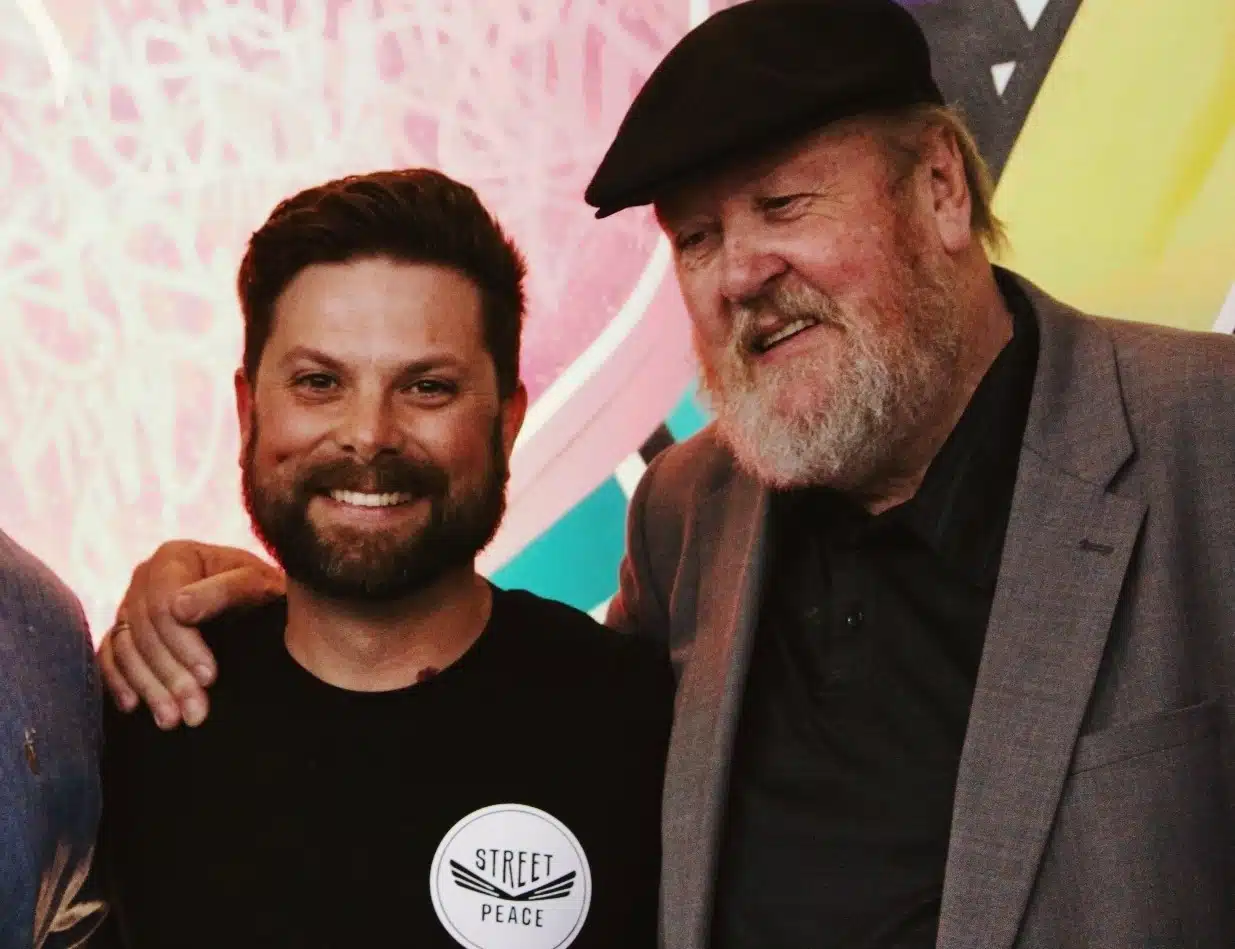Interview with Mark Whitby of Frankston Life Community
As of July 1, Street Peace has become its own charity and Public Benevolent Institution (PBI). Initially launched under Frankston Life Community Inc. (FLC) in 2019, with guidance from Mark Whitby, FLC has been instrumental in Street Peace’s growth. Their partnership with FLC laid a strong foundation for Street Peace, allowing the program to effectively reach and support over 500 disadvantaged youth in Frankston.
We had the opportunity to sit down with Mark Whitby to discuss the humble beginnings of Street Peace.
Tell me what was happening in Frankston before Street Peace started. What was the Street Peace Threads store and office space used for?
The Street Peace Threads store and office at 7D Station Street, Frankston, was originally a Salvation Army location. They ran a small church there back in the day. I led the Frankston Minister’s Network and approached the Salvation Army about using the space for a prayer meeting, which they allowed us to do. We started using this space more and more, probably about six years ago now.
When the Salvation Army decided to move out, the space sat empty for a little while. The owners offered it to us for a small fee to use for our charity, Frankston Life Community, and I was grateful for this opportunity.
Tell us about when you met Jahleel (Jay).
I met Jahleel around 2019. When I first met him, the Salvation Army was still there. At the time, Frankston had a lot of issues with kids, particularly teenagers causing trouble on Station Street. Shopkeepers were complaining to the Council, so it had become a notable issue. Because of my involvement in the city and charity work, I was invited to Council and retailer safety meetings.
Jahleel and his family had just moved to the area, and one day he turned up at the Salvos. He said he felt called to spend a month getting to know the locals. His background was in youth work as a youth pastor. We had coffee, talked a bit, and hit it off. For Jahleel and others, I’m a bit of a spiritual dad in the city.
We had another meeting with all the shopkeepers, and I invited Jahleel to come. There were about 30 people sitting in a big circle, and Jahleel and I sat at the back. Everyone did their talking, and finally, I said, “Listen, everyone, I’d like you to meet Jahleel Shelling.” They listened to him, and he just shared his heart for youth. He said, “You’ve got to address the issue with love and kindness.” While everyone else wanted more police to get rid of these kids, Jahleel was coming from a different perspective. He said, “We need to love them, you know?” It was pretty interesting, and they listened to Jahleel.
The next day, there was another meeting at the Frankston Council with the same people, and both Jahleel and I attended. Before this meeting, we were having coffee, and Ash Schofield, who was working for the Frankston Council at the time, joined us. He continued to talk about the problems they were having with youth. I took Ash with me to the Council meeting, and it was interesting because they all talked about solving the issue. Ash spoke, saying, “It’s all about love. All they need is love and understanding.”
How did Street Peace start?
Jahleel came to me and said, “I’ve got this idea about starting something with the youth.” He came up with the name “Street Peace.” Jahleel basically started this without any staff or money, and I helped him during the initial phase.
What did you see in this idea that Jahleel came up with?
I felt like he had something really valuable for the city. He’s quite an astute guy. I’d been praying for the Council and the shopkeepers, and I saw Jahleel as an answer to that prayer. As a minister, I looked at the kids differently, but I saw the real issues. Kids were out front, smoking and swearing, and people were too scared to walk past. It was quiet on Station Street, and all the shopkeepers were scared of these kids. Jahleel started talking to them because he’s super engaging.
He invited some of these kids to youth drop-in nights at the shop where the Salvos had been. Sometimes, 25-30 kids would come. Jahleel brought in some volunteers to help. The youth drop-in eventually got shut down in that shop. Once the building on Stiebel Place was registered as a church, we started running the youth drop-in nights there.
Jahleel received a couple of grants, allowing him to employ some staff and rent the old Salvos shop, converting it into a retail store for Street Peace Threads and an office for Street Peace.
Have you seen changes in the kids in the area?
There’s no doubt that Street Peace has made inroads with the disengaged youth of our city. We’ve seen several generations come through the place. It’s interesting how it addresses some of the worst-off kids’ issues and supports change by giving them purpose and hope. When they first started, many kids were really tough and difficult.
In the beginning, there were organised crime gangs in Frankston. Is that right?
Yes, that’s right. There were some pretty tough issues with the kids back in the early days, which is why the shopkeepers didn’t like them. One young boy passed away after stealing a motorbike and crashing. All the kids were grieving over this boy, and many knew him. Jay decided to run a memorial service for him, and about 100 people showed up. The kids really responded, crying and hugging each other since they weren’t invited to the real funeral. The kids respected Jahleel for that. However, the large gathering of kids likely led to the drop-in being shut down for a while until it reopened in the church on Stiebel Place.
Was taking on Street Peace a risk?
Yes, birthing Street Peace was a risk, but it’s been a reward and benefit too. It’s been a real blessing for our city. I love Frankston and value what it has added to the culture of our city.
Where do you see Street Peace going?
Jahleel’s got a vision for it to become a national organisation. It’s got the potential to expand all over the place. One of the unique things about Frankston is that it’s a place to birth new initiatives, something that has happened here over the years.
What’s next for you?
My role has been one of a spiritual parent, and I’ll continue to be that even after Street Peace moves from Frankston Life Community to its own entity and charity. It’s like when your teenage children leaves home—you’re still their parent, but your involvement is less. You don’t have to pick up their dirty laundry or cook meals for them, but you’re still their parent. That’s how I envision it.
What’s the future for Frankston?
I believe we’re going to see an awakening. That’s a promise. I feel like we’re going to see God’s goodness poured out here in such a way that it will change our city. That’s my heart.

